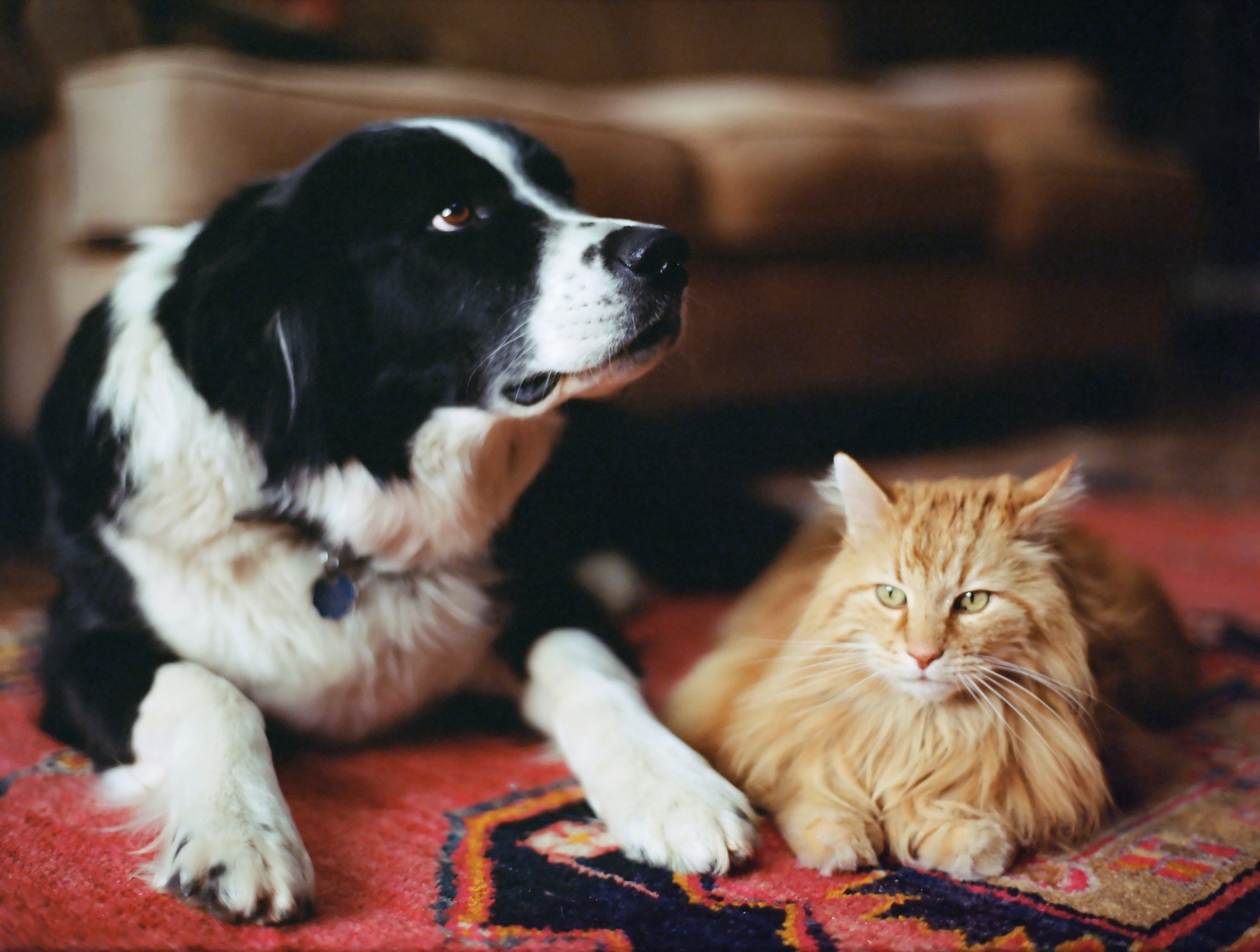National experts say house cats in several states have been diagnosed with bird flu. Here's what you need to know to protect your pets.

Is Bird Flu Dangerous for Cats and Dogs?

On This Page
Can Cats or Dogs Catch Bird Flu?
The nationwide spread of highly pathogenetic avian influenza, HPAI, also known as avian or bird flu has many people expressing concern about their pets, wildlife, livestock and public health.
HPAI is a very contagious and frequently deadly respiratory disease for domestic birds. The strain H5N1, has spread from wild birds to commercial and backyard poultry flocks (chickens, geese and ducks) as well as dairy cattle and pets, raising concerns about how the virus might be mutating.
Cats and dogs may be exposed to bird flu if they come into contact with sick or dead birds that are infected with the virus, the Centers for Disease Control and Prevention (CDC) warns.
Here’s what you need to know about other common wild bird diseases.
How to Keep Your Pets Healthy

To reduce risk, keep cats indoors to keep them from killing wild birds. Minimize their exposure to poultry and livestock, including chickens, ducks and dairy cattle. Monitor pet dogs and keep them on a leash when outside.
Pet owners should also avoid feeding their pets raw and undercooked foods.
On January 17, the U.S. Food and Drug Administration (FDA) issued an updated set of guidelines directed at raw pet food manufacturers, urging them to “reanalyze their food safety plans to include Highly Pathogenic Avian Influenza virus (specifically H5N1) as a known or reasonably foreseeable hazard.”
In another statement released the same day, the regulatory agency also implored pet owners to avoid raw pet foods containing cattle or poultry, given the heightened risk. “H5N1 can be deadly to cats, as well as dogs, so we encourage consumers to carefully consider the risk of this emerging pathogen before feeding their pets uncooked meat or an uncooked pet food product,” their experts said.
Is bird flu a threat to bald eagles?
What If You See Sick or Dead Birds?
Avoid handling dead or dying wild or domestic birds whenever possible. It is unlikely handling dead birds would lead to an infection, but it is best to follow these guidelines from the Illinois Department of Public Health. Wear gloves, safety goggles, and a mask. Avoid touching your face and wash your hands thoroughly afterward.
Report five or more sick or dead wild birds in an area to your state’s Department of Natural Resources or USDA Wildlife Services at 1-866-487-3297.
Symptoms of Bird Flu in Cats
According to the American Veterinary Medical Association, feline symptoms of bird flu can include:
- Loss of appetite
- Lethargy
- Neurologic signs (e.g., ataxia, circling, tremors, seizures, or blindness)
- Severe depression
- Discharge from the eyes or nose
- Other respiratory signs, including rapid breathing, shortness of breath, sneezing, or coughing
Pet owners who suspect that their pet could be infected with bird flu should take the following precautions, the AVMA adds:
- Call your veterinary clinic—before taking cats in to be seen—and describe any clinical signs they have noticed so that the veterinary team can be ready when the patient arrives.
- Limit your cat’s contact with immunocompromised individuals if any exposure to the virus is possible.
- Protect yourself and others from influenza by following recommendations from the Centers for Disease Control and Prevention (CDC).
- Monitor your family and other pets that might have been exposed for signs of illness, and report any human illness to their local public health official.
How Many Cats Have Been Affected?
At least a dozen house cats across four states have now died of bird flu or displayed symptoms of the illness, the FDA reported before the Trump Administration’s communications freeze on federal government public health agencies.
The animals are said to have become sick after consuming raw foods including unpasteurized milk and uncooked pet foods, sparking the FDA to propose the safety guidelines for pet owners.
The regulatory agency said in a statement shared with CBS News: “The FDA is aware of reports of death or illness associated with uncooked food in 13 domestic cats in eight households, one exotic cat in one household, and an unknown number of animals at two sanctuaries for large fields.”
Latest reports suggest FDA experts have identified these cases in multiple locations, including California, Colorado, Oregon, and Washington State.
Can Pets Spread Bird Flu to Humans?
Bird flu is widespread in wild birds and has caused outbreaks in poultry and dairy cattle farms throughout the nation. The virus has also infected some humans, though the risk of human transmission currently remains low. Many are farm workers who contracted it from infected dairy cattle or poultry.
Though it is unlikely that you would contract bird flu through contact with your infected pet, “it is possible,” the CDC advises. “If your pet is showing signs of illness compatible with bird flu virus infection and has been exposed to infected (sick or dead) wild birds/poultry, you should monitor your health for signs of fever or infection,” their experts say.
Human symptoms of the H5N1 virus can present as mild respiratory problems, pink eye, fever, sore throat, headaches and gastrointestinal problems, according to the CDC. More vulnerable or immunocompromised people may develop severe respiratory distress, seizures and other serious complications.




















